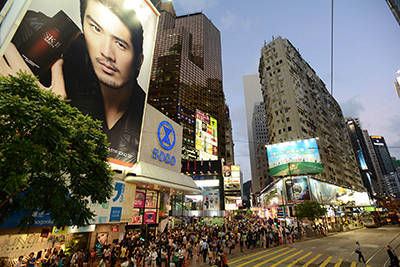Beneath the carapace of a magnificent skyline bustles one of the world’s most industrious and densely populated cities: Hong Kong. The city’s dynamism attracts an eclectic mélange of individuals, from high-level executives and their families to energetic young entrepreneurs. Rewardingly rich business and social networks are easily woven, ensuring Hong Kong daily life is rarely tarnished with a dull moment.
The city’s dynamism attracts an eclectic mélange of individuals, from high-level executives and their families to energetic young entrepreneurs. Rewardingly rich business and social networks are easily woven, ensuring Hong Kong daily life is rarely tarnished with a dull moment.
Life can be rewarding in this wealthy city, where fortunes are more often won than lost. David Hollins at Crown Relocations has provided some practical tips to help you smoothly transition into life in this growing economic power.
Choose your location wisely
“Hong Kong” means “Fragrant Harbor” and currently, over seven million people call it home, of which 95 per cent are Chinese and the remaining five per cent are of many different nationalities. A vast community of expats makes moving to the city a comfortable leap of faith – and each district holds its own unique character.
Hong Kong is composed of Hong Kong Island, Kowloon Peninsula, New Territories and various outlying islands. Hong Kong Island and Kowloon Peninsula are separated by the busy and vibrant Victoria Harbor. The central business districts and commercial areas are found mainly on the island and the peninsula, while the industrial area mainly lies in the New Territories.
The bustling lifestyle of Hong Kong Island can prove expensive, and does mean trading an expansive garden for a postage stamp-sized balcony. For those who prefer to take a breather from Hong Kong’s high-paced “work hard, play hard” lifestyle, there are other options. Lantau Island offers lush green, spacious, family- and pet-friendly living and is only a short ferry commute to Hong Kong Island. Clearwater Bay and Sai Kun are also popular among families, although the commute can be trickier.
Keep your English to Cantonese dictionary close
Expats won’t have problems living in Hong Kong without knowing the Cantonese dialect. Schools in Hong Kong teach in Cantonese, English and Mandarin so most Hong Kong citizens won’t have trouble communicating with foreigners. Of course, it is always recommended to learn a few common phrases in the local language, including the ability to give directions (for taxis) and count (for bargaining).
Enjoy extra-curricular activities
Hong Kong’s sultry heat, punctuated by frequent tropical storms during summer, lasts most of the year. This makes the pursuit of outdoor activities a popular pastime among residents, be it tramping the street markets, surfing at Big Wave Beach, running a marathon, or hiking the green hills. Those who prefer a more leisurely approach to life will find an abundance of fantastic shopping malls, galleries and swimming pools that provide welcome refuge from the heat.
Once settled in the city, newcomers will discover that a large percentage of the territory is actually country parks, mountains and wide open spaces. Outdoor pursuits like hiking, camping, water sports and trail running are easily accessible.
Understand local customs and cultures
Whilst English is prevalent as a language, cultural customs can prove different from those you might be used to. For instance, visitors should bring sweets or fruits with them when visiting a friend’s home. You may also bring flowers, but ensure these are never white, as these symbolize bad luck.
You should also wait for the host to take the first piece of food from the dish before you help yourself to any. It’s worth bearing in mind too that it’s not polite to take the last piece of meat or fish even if the host asks you to do so. Hong Kongers have a high tolerance for noise, so very loud (and public) mobile phone conversations, for example, are quite normal.
Prepare to feel the heat
Hong Kong lies within the tropical region and has four seasons, with summer and winter stretching longer than the other two seasons. Although it is hot and humid during the summer, most offices and malls are equipped with air conditioning so this will not affect the daily activities of Hong Kong residents. In January and February, it may feel that the weather is much colder than it actually is. This is because of the humidity, which may cause people to feel more chilly. Apartments in Hong Kong are not normally equipped with central heating systems, so some people may need to wear warm clothes at home or use portable heaters.
The typhoon season is normally from May to September. Typhoon warnings are issued by the Hong Kong Observatory and will be broadcast via the Internet, mobile phones, radios, televisions and signs that are prominently displayed in office buildings and shopping malls. At the hoisting of signal No. 8 and No.10, most offices, schools and shops are closed. It is advisable to go directly home, but public transport often comes to a standstill and getting a taxi during a typhoon can sometimes cost you three times more than the standard rate.
Enjoy your new lifestyle
Hong Kong is a city of contrasts, where the crowded, bustling city and commercial areas are offset by sleepy villages, deserted beaches and soaring peaks. Hong Kongers of all nationalities adopt the Chinese ethos of working very hard, and value politeness and manners in their dealings with others. They are justifiably proud of their wonderful city.
Want more settling-in tips, just click on the link.